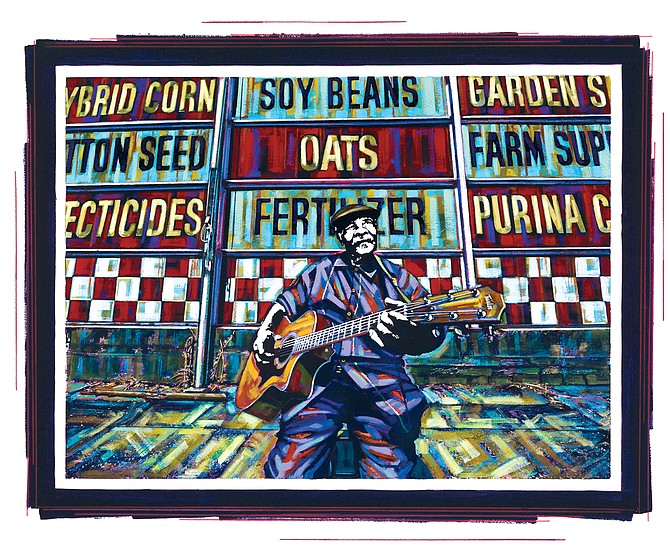Mississippi guitarist Eddie Cusic, a man whose contributions to the blues music scene far outweigh his own recognition, died Tuesday, Aug. 11, at 89 years old.
Cusic was born Jan. 4, 1926, to a farming family in the small town of Wilmot, Miss., just south of Leland. After working in the fields each day, the families in his community would often eat dinner together, and the men would bring guitars and play blues music on the porch. This inspired Cusic to create his own diddley bow—a single-stringed instrument fashioned by running a bailing wire, attached with nails, over a glass bottle on a board—at age 12.
When Cusic was 15 years old, he saved up and bought a Gene Autry acoustic guitar from Sears, Roebuck & Co., and learned that his father had a guitar once as well, though he didn't get very far with it.
"My mother told me my daddy used to tote the guitar up and down the turnrow and never did learn how to play, and it must have fell on me," Cusic told Vicksburg artist H.C. Porter in an interview for her "Blues @ Home" art series. "... Now, I got the Cusic name on the road—I did."
In his late teens, Cusic met a 10-year-old blues fan named James Milton Campbell Jr., who asked if Cusic would give him some guitar lessons. Eventually, Campbell joined Cusic's first band, a blues trio called The Rhythm Aces, and they performed in clubs across the Delta until Cusic joined the military in 1952.
Later, Campbell went by the stage name Little Milton and earned international acclaim on the legendary Sun, Stax and Malaco record labels. He was inducted into the Blues Hall of Fame in 1988.
Though Cusic continued performing both as a solo act and with blues artists such as James "Son" Thomas, he devoted most of his time to his day job at the quarry in Leland. He gradually performed less and less until he retired in 1989 and rekindled his love for blues music. Cusic released his debut album, "I Want to Boogie," in 1998, and played at events such as the Mississippi Delta Blues and Heritage Festival in Greenville, the Chicago Blues Festival and the Smithsonian Festival of American Folklife in Washington, D.C.
"(I'm) living better now than I ever lived in my life 'cause I come up the hard way—come up without a father," Cusic told Porter. "I think I did pretty good on my own. And now I'm a legend, a living legend."



Comments
Use the comment form below to begin a discussion about this content.
comments powered by Disqus